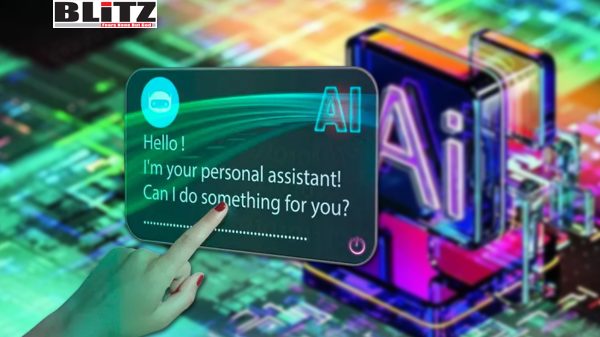How Artificial Intelligence will disrupt big tech from the inside out
- Update Time : Saturday, June 21, 2025

Artificial Intelligence (AI) is no longer just an emergent technology – it is a fast-moving force that is reshaping the global digital landscape with a speed and scale that is catching even the most powerful technology companies off guard. While mainstream narratives often focus on how AI will displace legacy industries such as law, transportation, education, and finance, a more ironic and imminent victim lies closer to home: the tech sector itself.
The world’s most valuable tech giants – Google, Microsoft, Apple, Amazon, Meta, and others – are built upon architectures, economic models, and user interfaces that are, in some cases, decades old. These systems have been optimized for efficiency and revenue generation, but not necessarily for adaptability or flexibility in the face of paradigm-shifting innovations. Now, AI is undermining the very foundations upon which these companies built their empires, and it is doing so faster than any previous wave of technological disruption in history.
Perhaps the most visible sign of disruption is the unraveling of Google’s grip on internet search. Google’s primary revenue engine – search-based advertising – is being undermined by generative AI systems like ChatGPT, Claude, and Perplexity. These platforms eliminate the need to click through multiple links and ads to extract information. They offer direct, synthesized answers in conversational formats, tailored to the user’s queries. While these tools are not perfect, their adoption is increasing rapidly – ChatGPT’s revenue alone is on track to exceed $10 billion this year.
Google’s late and hesitant rollout of AI Mode is telling. It’s caught in a classic innovator’s dilemma: adapting its product too aggressively might cannibalize the advertising revenue on which it depends. But doing nothing is also not an option. Internally, the company is clearly alarmed. As competitors offer cleaner, more intuitive, and ad-free interfaces, users are drifting away – a shift that could become a mass exodus if generative AI continues its current trajectory.
Microsoft and Apple are not immune either. While Microsoft has integrated AI into its Office suite in the form of “Copilot,” this approach is fundamentally constrained by the need for backward compatibility. Decades of document formats, macros, templates, and user habits cannot be jettisoned overnight. These legacy systems weigh down innovation. A similar burden plagues Apple, whose iOS architecture, while elegant, was never designed for AI-first experiences.
That’s where the new players are stepping in. Startups like Clay, Paradigm, and FuseAI are designing systems from the ground up for AI integration. They don’t need to worry about compatibility or legacy support; they can focus entirely on delivering intuitive, intelligent workflows that respond to user intent, not clicks. The outcome is inevitable: in many cases, the new tools are simply better – faster, smarter, and more tailored to how we work now.
The AI revolution isn’t stopping at software. Hardware is also in its crosshairs. Today’s smartphones, regardless of brand, rely on decades-old architectures – processors, interfaces, and operating systems built before AI became central to computing. But that is changing. Companies like Etched are creating AI-specific processors, and with increasing on-device AI capabilities, the path is opening for entirely new kinds of mobile experiences.
OpenAI’s $6.5 billion acquisition of JonyIve’s AI hardware startup, io, is a clear bet on this future. While the success of that particular venture is uncertain, the strategic direction is correct: building AI-native devices, unencumbered by past design paradigms. This could threaten Apple’s dominance just as the iPhone once toppled Nokia and BlackBerry.
Perhaps the most transformative force of AI lies in its ability to write code. Tools like Cursor, Claude Opus, and Windsurf are drastically accelerating the pace of software development. Productivity gains of 25% to 100% have already been observed in cutting-edge AI companies. Some startups have shipped polished products with teams of fewer than five engineers – sometimes in mere weeks.
In this new landscape, the traditional model of building and scaling a software company may become obsolete. The possibility of a one-person unicorn startup, once a joke, is now the subject of serious speculation in venture capital circles. If software creation is drastically simplified, the barriers to entry for tech entrepreneurship collapse – and with them, the gatekeeping power of Big Tech.
Established tech workers, especially those in legacy roles at firms like Google, are already feeling the pressure. Their job security is being questioned not by offshoring, but by automation. AI isn’t just a productivity booster – it’s a labor displacer. While there will always be a role for skilled software engineers, especially in designing and refining AI systems, many current roles are on the brink of redundancy.
For years, the tech giants have enjoyed monopolistic or oligopolistic control over vast swaths of the digital economy. This has led to “enshittification” – a term popularized by Cory Doctorow – where companies degrade user experience to maximize profits once they’ve locked users in. Apple’s App Store fees, Google’s ad-laden search, and Amazon’s bloated listings are all examples. Users, developers, and regulators are growing restless.
The convergence of antitrust scrutiny and AI disruption creates a perfect storm. But ironically, the legal system is poorly equipped to manage this change. Antitrust laws were written for railroads and oil refineries, not algorithmic ecosystems. Legal loopholes allow companies to acquire the soul of a startup – its people and tech – without acquiring the entity itself, thus avoiding regulatory review. Google’s $3 billion “non-acquisition” of Character.AI and Microsoft’s similar move with Inflection AI are recent examples.
So, what can be done to ensure that AI disruption leads to a more competitive and innovative tech ecosystem, rather than the formation of new monopolies?
First, antitrust enforcement must evolve. Current systems are too slow and too easily outmaneuvered by deep-pocketed defendants. Regulators must address indirect acquisitions and create frameworks to monitor the AI talent pipeline – not just ownership structures. There should be a serious push for transparency and accountability in how companies gain and maintain their AI advantages.
Second, and perhaps more crucially, governments must invest in public research and education. In the US, the strength of the startup ecosystem is undermined by declining academic R&D budgets and computer science education funding. Europe’s AI competitiveness is even more dire, with a startup scene struggling to compete globally.
Direct funding of university AI labs, federal grants for open-source models, and increased access to compute infrastructure for non-corporate researchers could ensure that innovation is not monopolized by a handful of giants.
Lastly, thoughtful oversight is needed to manage the ethical and safety implications of increasingly powerful AI systems. This must go beyond the typical corporate “ethics boards” and include binding regulation, possibly modeled on international frameworks akin to nuclear non-proliferation agreements.
The AI era may be the most significant technological shift since the invention of the internet. But this time, the first casualties may be the very companies that dominated the last digital revolution. As AI redefines software development, user interaction, hardware, and business models, it challenges not only technical assumptions but also legal, economic, and ethical frameworks.
For Big Tech, disruption is no longer coming. It has already arrived.


















